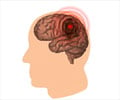
"Teens who experience more disordered sleep − in terms of duration, quality, and pattern − have a higher body mass index and a correspondingly higher risk of overweight and obesity," says Dr. McCrindle. "This, in turn, can lead to higher levels of cholesterol, another risk factor."
Over 1,600 students in grade 9 (ages 14 to 16) participated in the Healthy Schools screening program run by Heart Niagara. Overall, 22 per cent of students rated their sleep as fairly or very bad. Fourteen per cent of students reported difficulty staying awake during the day one to two times a week. Five per cent reported problems staying awake during the day more than three times a week.Significant numbers of children are already taking prescription or over-the-counter medications for sleep disorders, says Dr. McCrindle. Seventeen per cent of the students in this study reported regularly taking sleep medication.
The children who participated in the study used a questionnaire to track their overall sleep quality, frequency of sleep disturbances, and their use of sleep medication. Blood pressure, total blood cholesterol, and waist circumference measurement were also recorded.
Studies relate poor sleeping habits or not getting enough sleep with higher levels of blood pressure and other poor health conditions. And, conversely, physical inactivity and poor eating habits can affect one's sleep. "It is a perfect example of harmful synergy at work," says Dr. McCrindle. "It's like the chicken and egg conundrum: lack of physical activity and poor food choices negatively affect quality of sleep – and on the other hand, lack of sleep can lead to being too tired to exercise and not taking the time to eat properly."
Heart and Stroke Foundation spokesperson Dr. Beth Abramson says that more than half of kids between the ages of five and 17 aren't active enough to support optimal development. "Just as we've made it a priority to alert adults to the perils of an unhealthy lifestyle, we must start earlier than ever to ensure that our kids become properly educated from the start."
Advertisement
She says we need to lead by example as adults to help kids have healthy lives outside the classroom as well. "Parents can be good role models. If we work together on achieving healthier lifestyles by eating healthfully and being physically active on a regular basis, hopefully this disturbing trend in poor sleep and risk factors in teens can be reduced."
Advertisement
- Commit to a sound sleep routine. Not getting enough sleep, or poor quality sleep, can make it very difficult to handle everyday stress.
- Try to go to bed and wake up at the same time everyday – even on weekends.
- Sleep primarily at night. If you nap during the day, keep your naps short. Save your longest sleep for the night.
- Get at least eight hours of sleep every night.
- Avoid upsetting conversations, arguments, or anything that causes you distress before bed.
- Don't eat or drink large amounts before bedtime.
- Avoid nicotine, caffeine, and alcohol in the evening.
- Be physically active – regular activity can help with a more restful sleep, however, for some exercising right before bed may make getting to sleep more difficult.
- Go to bed when you are tired and turn out the lights.
- Life changes in the teen years cause stress, speak to a parent or doctor about ways to deal with anxiety.
"The bottom line is that sleep disorders seem to be on the increase among children and it is affecting their heart health," he says. "That is very bad news indeed."
This is the latest data from Heart Niagara Inc., a nonprofit corporation which partnered with school boards and public health officials in a grade 9 physical education curriculum enrichment program designed to prevent chronic disease.
Source-Eurekalert














